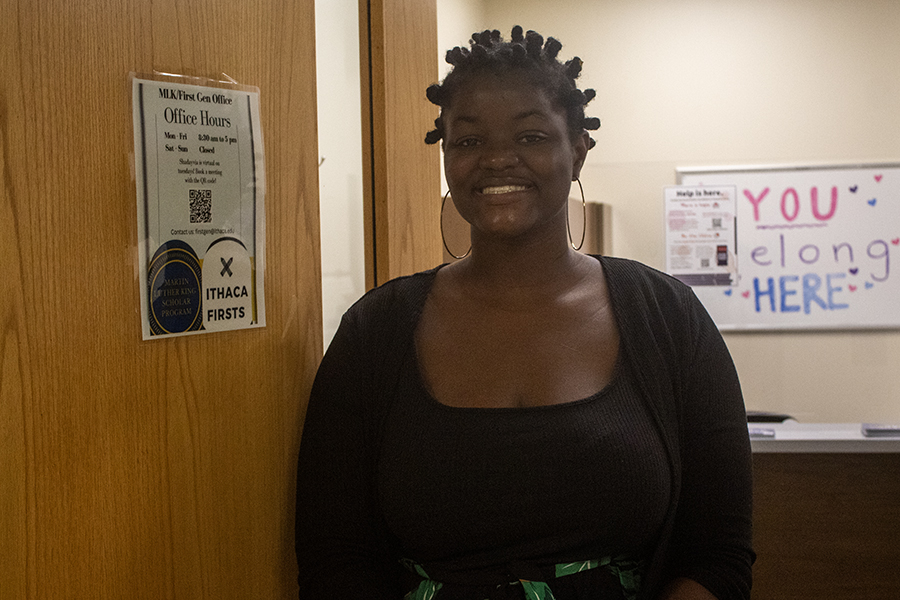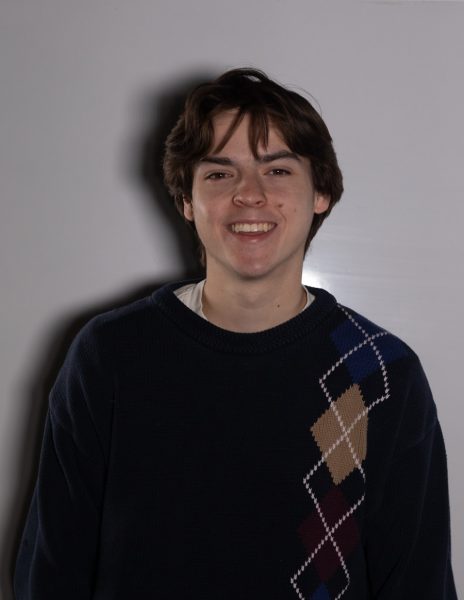The Center for First-Generation Student Success, an organization that works to advance the success of first-generation students, confirmed that Ithaca College has maintained its status as a first-generation forward institution for the 2023–24 academic year. The first-generation honors society, Alpha Alpha Alpha (Tri-Alpha), also conducted its first elections at the college Sept. 7.
There are over 500 first-generation students at the college and almost 15% of every incoming class identify as first-generation. In order to qualify as first-generation, a student must be the first in their family to pursue a bachelor’s degree.
To ease first-generation students’ transition to college and establish a community of first-generation students on campus, the college houses the First-Generation Center. Created in 2018, the center provides programming opportunities for students, sets students up with faculty mentors and offers a pre-orientation program to get students familiarized with the center and the college.
Shadayvia Wallace, director of the MLK Scholars and First Generation Programs, is required to attend a minimum of three online learning events and a minimum of four monthly regional community meetings that the Center for First-Generation Student Success holds. Wallace said she first heard of Tri-Alpha through one of these regional meetings.
“It’s been a great opportunity to learn about how to be more supportive here and things we can be keeping in mind here,” Wallace said. “Not just program wise but our systems, including first-gen students.”
To be recognized as first-generation forward, schools must submit institutional goals and a report of completed requirements to the center and host a first-generation celebration event. Wallace also said via email that some of the college’s institutional goals that were submitted are to continue creating engaging programs, create excitement for Tri-Alpha and engage students in new spaces across campus. The college has maintained its status as a first-generation forward institution since 2019.
In 2022, students and Wallace began the process to institute a chapter of the Tri-Alpha National Honors Society. Tri-Alpha is an honors society that first-generation students can join if they have a 3.2 GPA or higher with 30 or more completed credit hours. Tri-Alpha has over 135 chapters in colleges and universities nationwide and was started in March 2018 at Moravian College.
Wallace said the first induction of students at the college who met the requirements of Tri-Alpha occurred in Spring 2023. In Fall 2023, the society had its first election.
“[The society] will have their own e-board and hopefully soon they will be able to do their own programming,” Wallace said. “For now, I am just trying to get them together so they can get established.”
Junior Katharina Hodel, president of the college’s Tri-Alpha chapter, said that the 16 members of the chapter voted for the e-board and that Tri-Alpha waited to have elections this year because they wanted to start on a full academic year.
“As a first-generation student you already have this community [on campus],” Hodel said. “But I think with Tri-Alpha, you really have a closer community of first-generation students who really want to focus on certain things and we can make easy connections now [with each other] and that’s great.”
Senior Sarake Dembele is a founding member of Tri-Alpha and said she felt honored to have an opportunity like this on campus.
“I felt like I wasn’t really recognized for my academic achievements so [getting in] was really nice,” Dembele said. “For me, [the society] created this community because I did meet other first-gen students that I had never seen before so that was exciting.”
Dembele said Tri-Alpha will soon be connecting with first-generation alumni from the college and other chapters from other colleges and universities. Dembele also said Tri-Alpha is planning conferences, workshops and professional development opportunities for students.
As of 2022, almost one-third of all college students are first generation in the United States. Even though first-generation students make up a sizable number of the student population in the United States, only a fraction complete their degree. A study done by The Pew Research Center found that in adults aged 22 to 59, only 20% of first-generation students actually completed a bachelor’s degree compared to 82% of students with two parents that attended college.
Cory Young, associate professor in the Department of Strategic Communications, is a mentor to first-generation students through the Ithaca Firsts Mentor Program. Through this program, students are paired with faculty who also identify as first-generation.
Young said the college currently has more programs for first-generation students than she had access to when she was a first-generation student.
“The mere fact that [students] have these services, that there is a first–generation center that you can stop by anytime and connect with people is … immeasurable,” Young said. “The biggest thing that first-generation students face is feeling alone or disconnected from their family and then feeling alone because they’re not sure who else might identify as first–gen.”
Dembele said the center helps her with leadership skills, finding clubs and managing her mental health.
“I was having a hard time managing my stress and managing my time,” Dembele said. “[Wallace] really directed me to the right people [and] right programs.”
A survey done by Inside Higher Ed and College Pulse asked over 1,000 first-generation students what they would like to see their colleges do to support first-generation success. According to the survey, 20% of students said to offer first-generation specific orientation programs, 19% of students said to create a center specifically for first-generation students and 17% of students said to match first-generation students up with faculty mentors.
Junior Kailee Leung works as a mentor coordinator at the center and said students often come into the office to talk to Wallace about the day-to-day struggles of being a first-generation student.
“You don’t know what you don’t know,” Leung said, “Sometimes students will come and talk to [Wallace] about what’s been going on in class or even just purchasing textbooks. … Being without parental support can definitely be difficult for first-gen students.”
Wallace said that being a first-generation student allows her to lead with empathy and that when students come to her asking for support, she meets them where they are.
Leung said the center has been working hard to promote programs and events on campus so students know the center is there and here to support them.
Wallace said the center will be celebrating the second annual first-generation week from Nov. 6 to 10 and she is also planning a fifth birthday for the center, which is Nov. 6. Wallace also said that having events and programs for first-generation students is important because it allows students to know the institution is committed to their success.
“Students can trust the institution [and] that they are going to be successful here, as an incoming jumpstart participant all the way through being a senior [that can] participate in the senior celebration in April,” Wallace said. “We want to make sure that everybody has a community behind them that wants to see them successful.”















